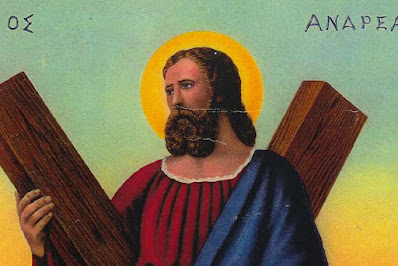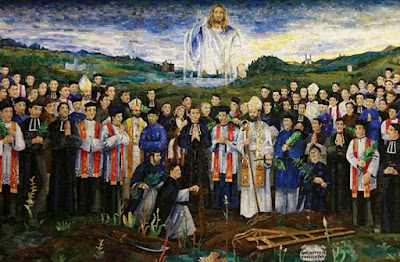“Viva Cristo Rey!” “Long live Christ the King!” These were the last words Fr. Miguel Augustin Pro uttered before he was executed by firing squad by the virulently anti-Catholic government of Mexico on November 23, 1927.
When Mexico achieved its independence from Spain in the 19th century, the government also sought to divorce itself from Catholicism. Mexico’s 1917 Constitution brought the seizing of church property, the outlaw religious orders, and the government’s insertion into internal Church affairs. The Constitution prohibited priests from voting or offering any comment on public policy. Priests were also banned from wearing their clerical attire or vestments outside churches. Public displays of faith like the Corpus Christi Procession or praying the rosary publicly were strictly forbidden.
Some Catholics rebelled against the government persecution; the Cristeros movement fought against the anti-Catholic regime, which by the 20s was executing priests and even young people who practiced their faith.
Pope Pius XI wrote three encyclicals denouncing the persecution in Mexico, calling upon faithful Catholics to defend the Church when possible. The persecution finally ended when a Catholic president, Manuel Avila Camacho, was elected in 1940. Yet, when Pope St. John Paul visited Mexico in 1979 it was still illegal for him to celebrate Mass in public.
The most famous martyr of this persecution is the Jesuit priest Blessed Miguel Augustin Pro. When Churches were closed by the government, Fr. Miguel would celebrate Mass in secret to provide the Eucharist for Mexico’s faithful. He became known throughout Mexico City as the undercover priest who would show up in the middle of the night, dressed as a beggar or a street sweeper, to baptize infants, hear confessions, distribute Communion, or perform marriages. Several times, disguised as a policeman, he slipped unnoticed into the police headquarters itself to bring the sacraments to Catholic prisoners before their executions.
Eventually, Fr. Pro was captured and arrested and sentenced to death. The President of Mexico ordered his execution to be photographed in great detail, hoping to incite fear amongst the Cristeros Catholics. You may have seen the photographs of Fr. Pro, dressed in a suit, facing the firing squad, with arms outstretched like Jesus on the Cross. The photographs, instead of inciting fear had the opposite effect, and Catholics began to show great devotion to the martyr—soon the government forbade the distribution of the very photos it had publicized!
When Pius XI instituted the Feast of Christ the King for the universal Church in 1925, Christians were facing grave difficulties: the Mexican persecution of course, the rise of National Socialism which would become Nazism in Germany, Atheistic Communism in Russia, and the rampant Materialism, Consumerism, and Racism of the roaring 20s here in the States. The Pope instituted this feast for one, to show “the deplorable consequences” produced when individuals and governments rebel against and reject the Gospel. Godless governments are always anti-life governments, they emphasize power over peace, the state over the individual, and they censor and persecute religion. And it can and is happening again in this country.
Pope Pius XI also wanted to strengthen and encourage Catholics facing persecution, like the Cristeros Catholics in Mexico. This feast of Christ the King, gave Fr. Pro and so many others, the courage to continue to work for the spread of Christ’s reign, despite formidable hostilities.
This feast is also a reminder to all Catholics: that amidst all the trials of life, our faith in Christ can and will sustain us in the most difficult moments of life, it can and will transform our fallen world, if we let it. And to those who allow Christ to reign in them and through them, our Good King will speak the words we long to hear: “'Come, you who are blessed by my Father. Inherit the kingdom prepared for you from the foundation of the world.”
On this last feast, this last week of the liturgical year, we consider what in the end really matters, not our status in any political party, not the esteem of our superiors or friends, but whether in the end we have allowed Christ to reign as king in our hearts and minds and wills.
In the Gospel, we hear of Pilate asking Christ, are you a king? Notice that Jesus does not answer Pilate’s question directly. Why? Because You have to answer this for yourself. On one level, Pilate washed his hands of this question because he was unwilling to face the political and professional ramifications for allowing Christ to be his king. The truth that Christ is King will set you free if you let it.
But on a deeper level, what kept Pilate from acknowledging Christ as king was his pride. Pride always keeps us from Christ as King because pride does not acknowledge a king outside of one’s self. Pride says, “I need be the one in charge, I need to lord power over others, I determine what truth is for myself” But this sort of pride is a rebellion and rejection of God-- the sort of rebellion and rejection of God that leads to broken friendships and families, even gulag’s and concentration camps. History shows this over and over again. Godlessness leads to violence towards one’s fellow man and self-destruction.
But pride can be shattered, and it must be shattered, in order to belong to that the kingdom of truth and life, the kingdom of holiness and grace, the kingdom of justice, love and peace, the kingdom of Christ that we know we long to be apart of.
The upcoming month of December, and the season of Advent, we know is filled with many demands on our time. So during all of the busyness of the month ahead, we must remember our deepest duty is to Christ: not to contribute to the growing godlessness of our culture, but to bring about his Kingdom through faith, hope, and charity.
The changing of a liturgical season is always a good time to do some self-examination: to examine whether selfishness, pleasure, lust, control, pride, reign in our lives, or Christian generosity, self-control, humility, and prayer. And it is a good time to make a good confession of the times we let sin reign in us, rather than Christ.
This week, I encourage you to plan ahead for Advent, which begins next sunday; plan additional daily prayer time, additional spiritual reading, additional acts of mercy and charity. Get to weekday Mass during Advent. So that you can hear and reflect upon the beautiful advent scriptures and lessons, and to pray and celebrate Eucharist for those souls who have lost focus of the reason for the season.
Make a good sacramental confession prior to Christmas—acknowledge those times when pride has taken the place of the love of Christ the King.
“Viva Cristo Rey!” “Long live Christ the King!” in us. In our minds and hearts, our relationships with family, friends, strangers, neighbors and enemies.
When we allow Christ to reign in us, he transforms us into instruments of his justice and his goodness. We become partners with Christ in reuniting divided humanity, in extending God’s mercy, truth, and love to all, for the glory of God and salvation of souls.



















